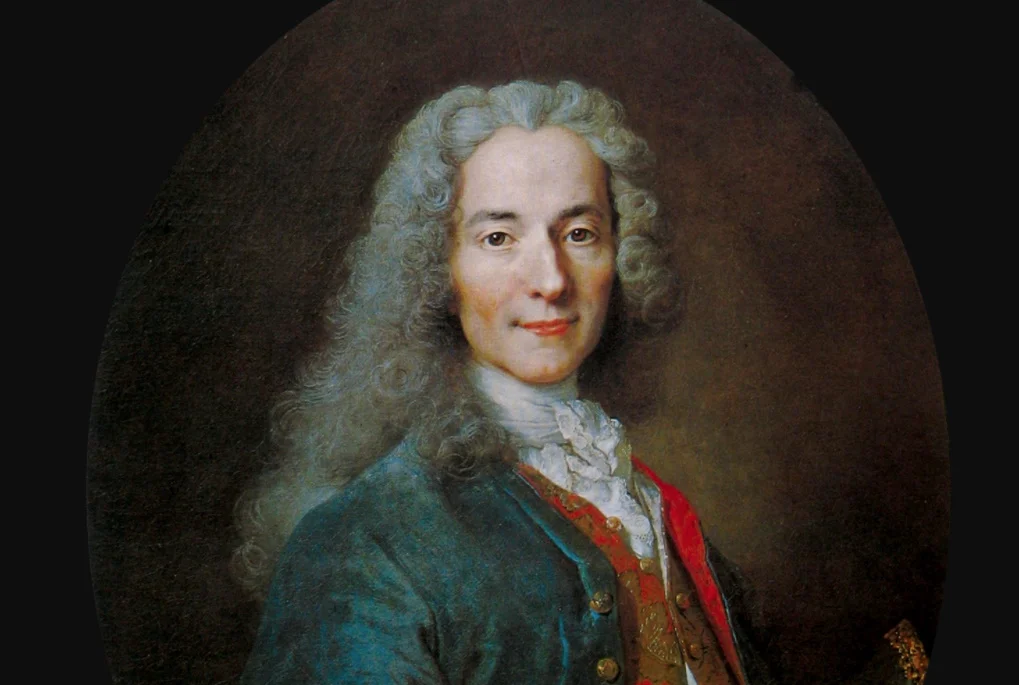The statement, which has become one of the symbols of the fight for freedom of speech, is often attributed to the French philosopher Voltaire. We checked to see if it really belongs to him.
A reference to Voltaire in connection with this phrase was repeatedly made by many famous people, including the TV presenter Vladimir Pozner, film director Andrey Konchalovsky, State Duma deputy Franz Klintsevich, writers Zakhar Prilepin, Victor Suvorov, Orthodox Metropolitan of France Immanuel, freelance adviser to the President of Ukraine Oleg Medvedev, Governor of Florida Charlie Crist, President of the Czech Republic Milos Zeman and many others. Sometimes in Russian the statement looks like “I don’t agree with a single word you say, but I’m ready to die for your right to say it.”
For the first time, this quote appears in print not in French, but in English. In 1906, the biographical book “Friends of Voltaire” was published, authored under the pseudonym S.G. Tallentyre was the English writer Evelyn Beatrice Hall. In one of the episodes of the book, Voltaire’s reaction to the public burning of the work “On the Mind” by another famous French philosopher Helvetius is described. This 1758 work, condemned by Pope Clement XIII, the Parisian parliament and the theological faculty of the Sorbonne, according to Hall, was not liked by Voltaire himself. However, upon learning of the radical decision of the powers that be, he exclaimed: “What a fuss about an omelet!” Next come the following words:
"'I don't approve of what you say, but I will defend to the death your right to say it' was his attitude now."
As we see, the phrase, which later became a catchphrase, describes Voltaire’s attitude to the situation, but is not the philosopher’s direct speech. At least it is not presented as direct speech. The ambiguity could be caused by the quotation marks in which this phrase is enclosed. In addition, in 1919, another book by Hall was published, “Voltaire in his Letters,” where the phrase was again given outside of direct speech and dubbed the “Voltairean principle.”
The two above-mentioned publications contributed to the fact that the phrase first spread across English-language sources, and then began to penetrate abroad. So much so that in 1939 Hall attempted to dispel the misconception in a letter published four years later in the journal Modern Language Notes:
“The phrase “I completely disapprove of what you say, but I will defend to the death your right to say it,” which can be found in my book “Voltaire in his Letters,” is my own expression, which should not have been in quotation marks. Please accept my apologies for unknowingly making you think that I was quoting Voltaire (or anyone else other than myself).”
In another report, cited by the Saturday Review, Hall claimed that it was a paraphrase of Voltaire's aphorism "Think and let others think too" from Essays on Tolerance. Note that the latter resembles the phrase we are considering very vaguely.
But it was already too late. Voltaire’s “quote” already had a life of its own, and, moreover, later it had a “primary source” in the form of a letter from Voltaire dated February 6, 1770 to Abbot Le Riche. However, closer examination showed that there was nothing similar in letter no and the statement is simply the result of an error. However, all these revelations do not prevent many famous people today from attributing to Voltaire a phrase authored by the writer Evelyn Beatrice Hall.
Incorrect quote attribution
Read on topic:
1. https://avva.livejournal.com/1183274.html
2. https://quoteinvestigator.com/2015/06/01/defend-say/
If you find a spelling or grammatical error, please let us know by highlighting the error text and clicking Ctrl+Enter.






